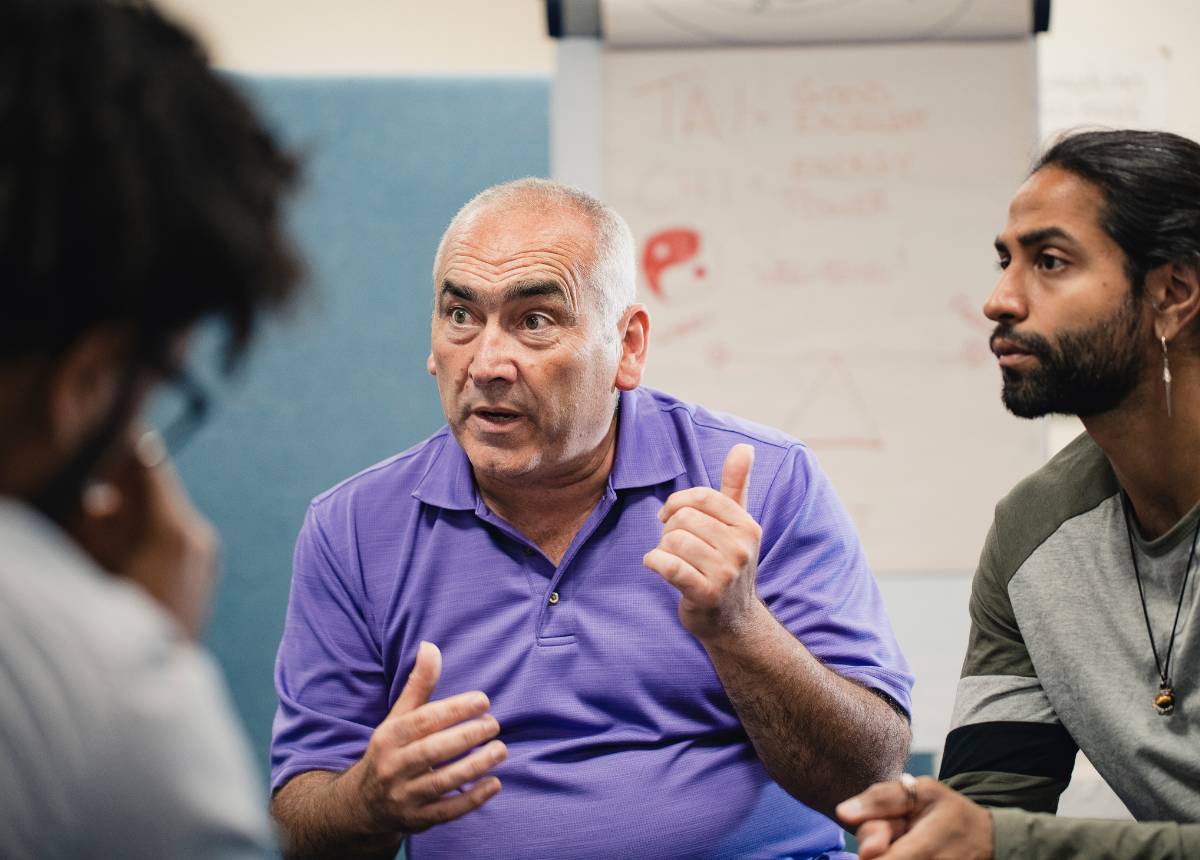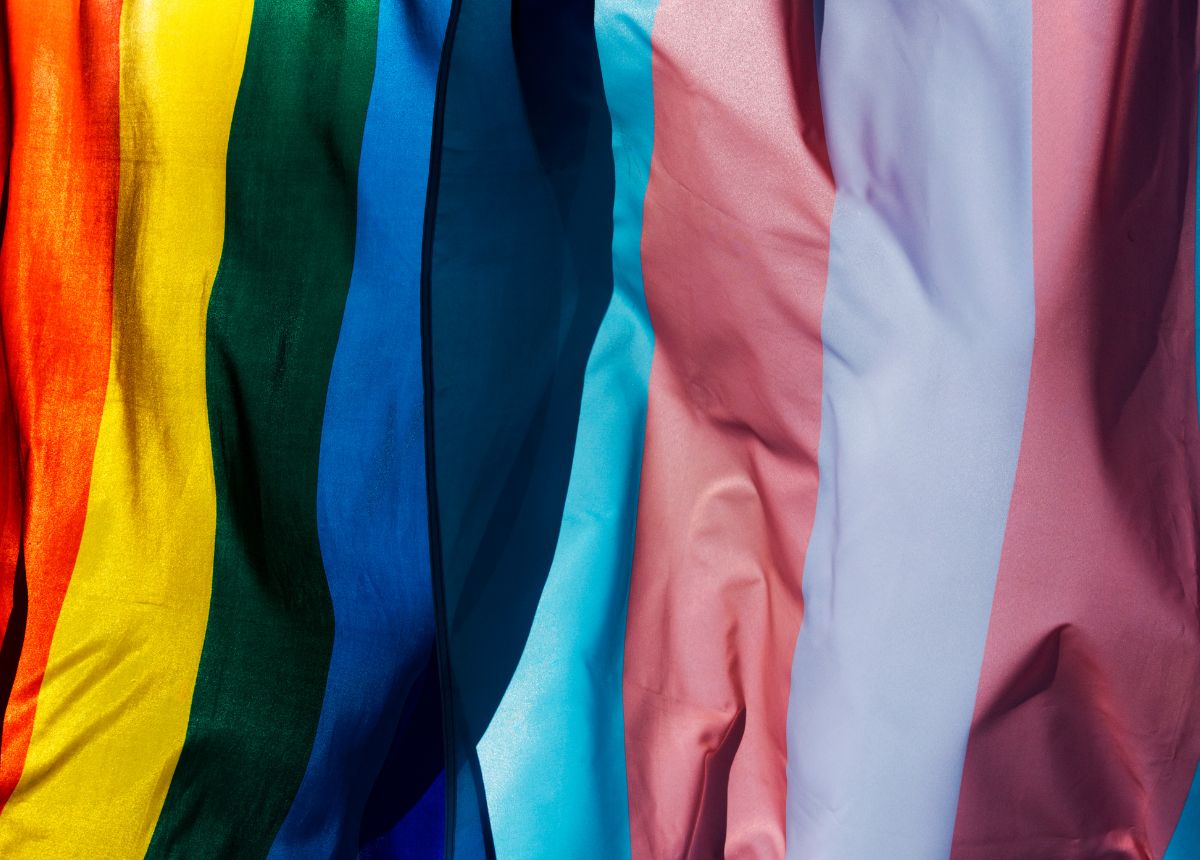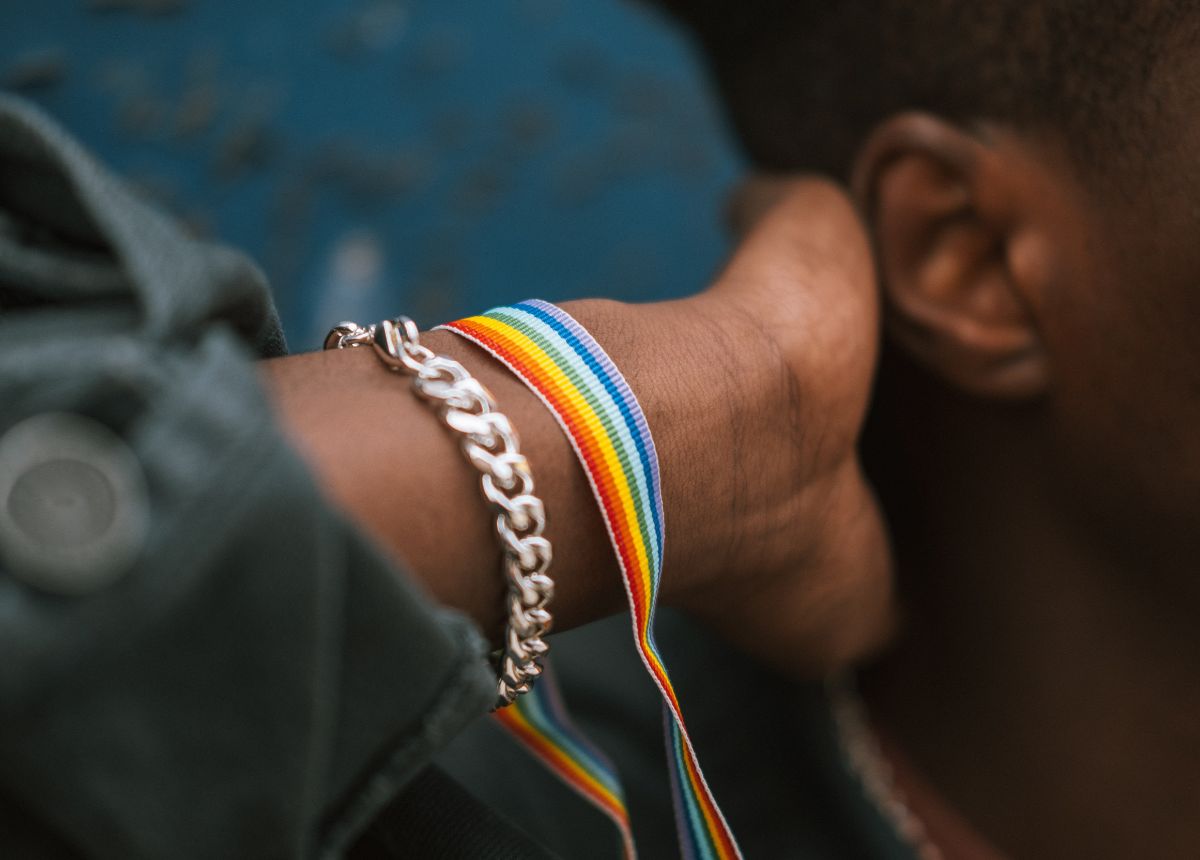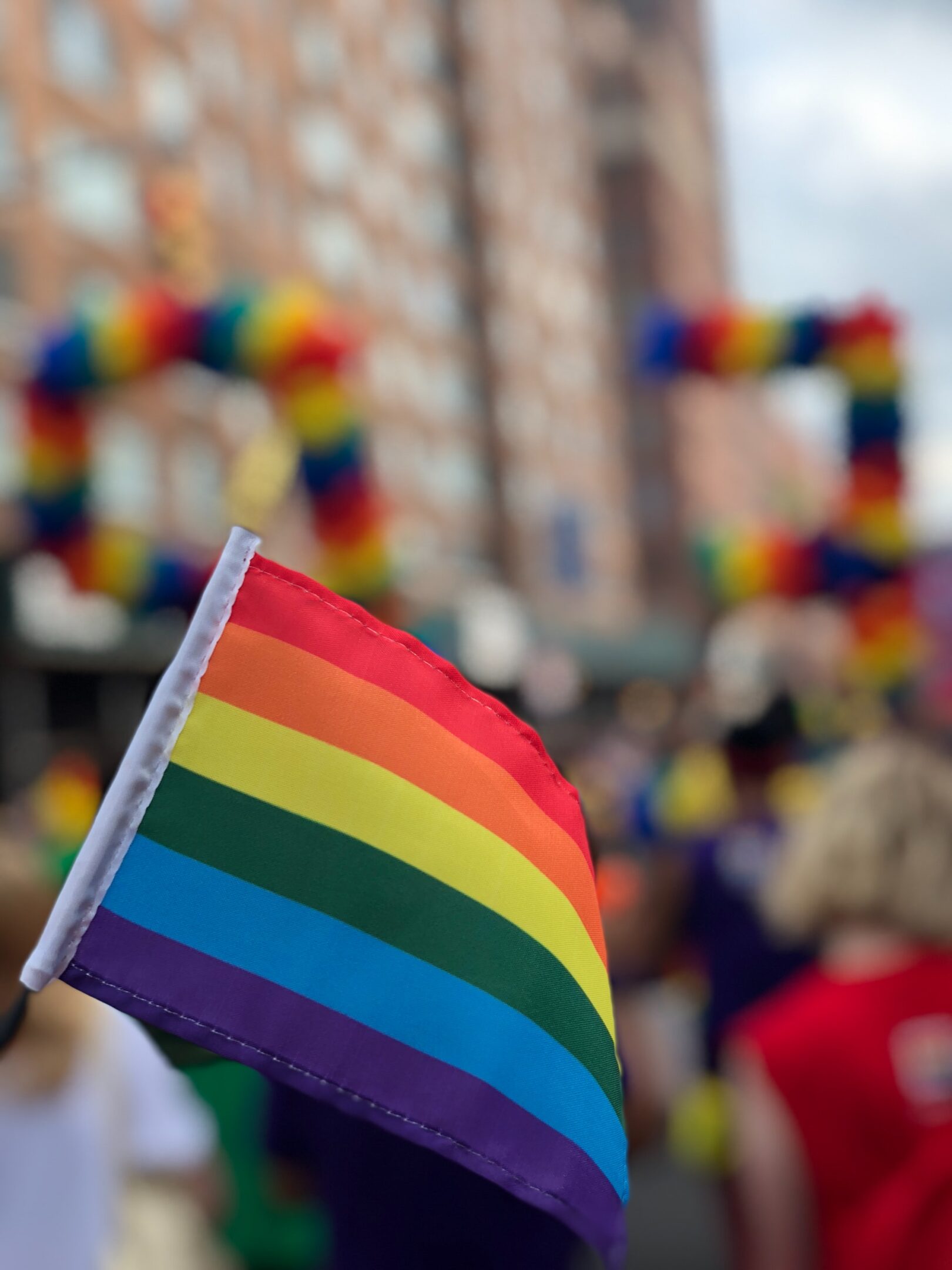Help direct the future of Rainbow Migration
***This opportunity has now closed***
Would you like to join our board of trustees? At Rainbow Migration we are currently on the lookout for one or two new trustees.
Our current board consists of people with a wide range of backgrounds, skills and experiences, including lived experience of the asylum system, law (public law and human rights), academia, communications, fundraising, and finance.
We’re interested in hearing about any skills and experience you can bring to the table, especially if you:
-
- have experience of involvement with people that access support services
- have experience in safeguarding
- are tech savvy
- have helped organisations become anti-racist
But don’t worry if you don’t – there are plenty of other valuable skills and experiences that we’re looking for too! We encourage applications from people from all walks of life, and would particularly like to hear from you if you:
-
- have been through the asylum system
- are disabled
- are neurodivergent
- are trans
Still unsure whether this opportunity is for you or not? Here are some frequently asked questions that might help you make a decision.
So what will I be doing?
Trustees are legally responsible for Rainbow Migration. Your duties will include:
-
- Setting strategy. Our trustees have recently set our strategy for 2023-25 – joining the Board at this time means making sure we deliver on the strategy
- Ensuring we abide by our constitution, follow the law, and act in line with our values and policies
- Making good use of our money and resources
- Considering and mitigating risks
- Reporting to the Charity Commission
These are some of the matters trustees have discussed in their last few meetings:
-
- HR, including staff salaries, pensions and wellbeing leave
- Our finances, including how we spent money in 2022 and our cashflow in 2023
- Organisational policies including safeguarding, consideration of criminal offences, health and safety, and environment and sustainability
- How changes in law and government policy could affect our service users and our work
What if I don’t have experience as a trustee? Can I still apply?
You absolutely can. We will support you to develop in the role. For example, we can ‘buddy you up’ with an existing trustee that you can meet regularly to prepare for board meetings. We also provide training.
Will I be able to work with service users?
The role of trustees is to govern the charity and ensure we are meeting the purpose for which we exist. You won’t have much involvement in the day-to-day work for the charity, so contact with service users will be limited.
I don’t have a computer. Is that a problem?
We don’t want technology to be a barrier to becoming a trustee. It’s helpful if you have a smartphone, at least, so that you have regular access to emails and can connect to meetings on Zoom. We can provide training if you need to learn how to use Word or Excel, for example. Please apply and we can talk about how we can help make sure you can participate fully.
Can I become a trustee if I’m applying for asylum?
We can only accept applications from people with leave to remain in the UK or UK citizenship. We would be happy to consider an application from you to become a trustee when we next recruit if you have secured leave to remain by then.
We are recruiting people to join our board of trustees
***This opportunity has now closed***
Who are we looking for?
We are looking for one or two people to join our board of trustees. Our current trustees have skills and experience covering lived experience of the asylum system, law (public law and human rights), academia, communications, fundraising and finance. We are keen to hear about the skills and experiences you have to offer, and are particularly interested in potential candidates with experience in any of the areas below. However, these are not the only skills and experience that are important.
- Service user involvement
- Safeguarding
- ICT and digital
- Anti-racism
If you are interested in becoming a trustee and have the willingness and time to contribute, we encourage you to apply and tell us what skills or experience you can bring. Please don’t limit yourself to those in the list above. We welcome applications from people who have not served on a trustee board previously. You can live anywhere in the UK.
At Rainbow Migration, we don’t just accept difference – we celebrate it, we support it, and we thrive on it. We’re proud to be an equal opportunity employer and we value diversity. We particularly encourage applications from:
- People who have been through the UK asylum system
- People of colour
- Disabled people
- People who are neurodivergent
- Trans individuals
What will you be doing?
Being a trustee is a rewarding role. Trustees bring their expertise to shape Rainbow Migration’s strategy and direction, and help ensure we remain the authoritative organisation on LGBTQI+ asylum and immigration. They have overall legal responsibility for the charity, make sure our finances and resources are well used to implement our mission, and are required to participate fully in the governance of the charity. Trustees also play a role as ambassadors for the organisation and its work. For more information see https://www.gov.uk/guidance/charity-trustee-whats-involved or https://www.youtube.com/watch?v=U8TIkLLwwdQ
What support will you receive?
We provide numerous resources for trustees to receive training on good governance and the duties of a trustee, as well as on charity finance. Trustees will also receive training on safeguarding, cyber-security and data protection. Other training can be arranged to suit your needs. Training costs are covered by Rainbow Migration.
‘Buddying up’ with an existing trustee can also be arranged, and this is encouraged for those for whom this is their first time serving as a trustee. This involves meeting up with a longer-serving trustee outside of board meetings, occasionally or regularly, to discuss:
- The format, style and content of board meetings generally
- Papers submitted to upcoming trustee board meetings
- Experiences serving on the board
You will also have induction meetings with Rainbow Migration staff.
Find out more about what our trustees do here.
***This opportunity has now closed***
What does a Support Worker at Rainbow Migration do?
Our team of Support Workers provide emotional and practical support to lesbian, gay, bisexual, trans, queer, and intersex people, who are going through the UK asylum and immigration system. We spoke to one of them, Stuart, who explained what Support Workers do, and why their work is so important.
What kind of issues are LGBTQI+ people in the asylum system specifically facing?
LGBTQI+ people seeking asylum face particular risks. One of the biggest issues is living conditions. LGBTQI+ people are often housed in inappropriate accommodation, with people who are LGBTQI-phobic.
LGBTQI+ people also must ‘prove’ their sexual orientation and gender identity for their asylum application, but this can be very challenging. LGBTQI+ people are sometimes disbelieved by the Home Office, which often wants straightforward, traditional stories of “coming out”, but most of our service users have had to live secret lives as they are fleeing dangerous and homophobic societies. Or the Home Office might expect our service users to provide very specific evidence, such as being in a relationship. They are often isolated which means they aren’t part of an organisation and don’t have LGBTQI+ friends.
Often, they are fleeing persecution in their home country, and come to the UK seeking safety. As they have often had to hide their sexual orientation and gender identity, it can be very difficult for them to provide any evidence they are LGBTQI+. They might also need to avoid other people from their country, because they might be at risk of facing the LGBTQI-phobic abuse they are fleeing.
This means that LGBTQI+ people in the asylum system in the UK need specific support and safeguarding throughout the asylum process, which we aim to provide for them.

What does a Support Worker at Rainbow Migration do?
Primarily, we provide one-on-one emotional support. We also have men’s, women’s and trans support groups. We meet, in person, twice a month. This is an opportunity for our service users to meet other people in similar situations, and to share our good or bad news with each other. It’s a way of building a support network, and it’s a really important part of our service.
Generally, our service users are very isolated. The pandemic made that worse. We are here to talk to them. They are often new to the UK and don’t know many people. Often, they keep their sexual orientation, gender identity, and their asylum status to themselves. Many are used to having to hide who they are, having faced a lot of stigma both in their home countries and here in the UK. They are often traumatised and may find it difficult to talk to strangers in a Home Office interview. We help them deal with what can be very stressful situations.
We help our service users access safe housing and healthcare. We talk to them about mental health, and if we need to, find them a therapist or counsellor, or make sure they have access to the right medication. Sometimes we cover their costs for healthcare, or essential purchases such as hygiene products or food.
We also have a legal team to guide them through the asylum process, and they help them find legal representation. We refer our service users to legal aid solicitors, or for pro-bono advice. We also have monthly partnership sessions, where pro-bono solicitors offer free advice to LGBTQI+ couples who need support when one or both partners need a visa to stay in the UK, as the process for couples is different.
All our services are free, confidential, and available before and during their asylum claim.
What does a typical day for a Support Worker look like?
I book calls and have catchups with service users. Most of my service users don’t have many people to talk to, so it’s important I can be there for them. Sometimes I have emergencies, such as someone being made homeless, or someone urgently needing a solicitor. Many of my service users feel very low and are having mental health crises; so, I take lots of time each day to be as much of a support to them as possible. This can be in person, over the phone, or by email. Many feel unheard, invisible, ignored, helpless. I am here to listen and help as much as I can.
Every two weeks I run the men’s support group. We meet in person, and at the moment we have about 15 men in the group. It is a safe space, for our service users to share their stories, listen to each other, and be themselves without judgement.
What is the asylum process like?
It can take years to claim asylum. Some of our service users wait as long as five years to hear a decision. Many wait two years just for the interview. They just don’t know when they’ll hear. There’s no pattern, it’s not like the Home Office is working through an organised waiting list. It’s impossible to say when people will hear about their case. Their lives are on hold. It’s a very long, frustrating waiting game.
Whilst they’re waiting, they’re trying to live on £40 a week. It’s almost impossible. After a year you can apply to work but only for specific jobs such as care, but many of our service users are not in a situation to provide care for others. Many of them are facing their own mental health issues. Most of them need too much support to then be supporters and carers themselves.

How could the system be improved?
People seeking asylum should be able to work, have access to better housing, and have a choice about where to live. There should be more LGBTQI+ accommodation, such as the ones that Micro Rainbow already provides. Trans people seeking asylum are especially at risk. LGBTQI+ people should be able to live and work safely. The process is so expensive, yet also so slow. The application system needs a time limit; people should be guaranteed an interview and a decision by a certain time. It’s so cruel to keep people waiting, in poverty, for years. The fact that the system is getting even slower since the pandemic is ridiculous.
LGBTQI+ people in immigration detention are not safe. They shouldn’t detain anyone; the use of indefinite immigration detention is inhumane. At the moment, people can be detained in these centres for months and even years. Their lives are in total limbo.
The system is terrible for everyone, but it especially harms LGBTQI+ people. Those seeking asylum should be able to work. Instead they are housed in Home Office accommodation, with nothing to do; the current system costs a huge amount, and no-one in this country benefits, financially, or otherwise.
We need a massive change in the way the media reports asylum; we need to change public opinion around it. We need a change in the asylum system. The whole process is broken.
What is the best thing about your job?
Well, my job shouldn’t exist. If we had a better, more humane system, my role wouldn’t be necessary! But as it is, I do the best I can. What I will say is that I have the most amazing team and support network around me. My colleagues are fantastic, and I couldn’t do this job without them.
Full breakdown of countries that the asylum bill considers ‘safe’ but are not safe for LGBTQI+ people
- Albania: In 2021 (the most recently published ‘experimental’ data)1 there were around five grants of asylum made by the UK to Albanians who were recognised as being at risk of persecution due to their sexual orientation.
- Brazil: Asylum claims based on sexual orientation are being made here in the UK, but the number of any grants is not provided in the published data. We are routinely contacted by Brazilians who fear return to their country, with good reason (see e.g. here and here).
- Bulgaria: This is not a source country for people seeking asylum in the UK, however there are also serious issues for LGBTQI+ people in Bulgaria (see here and Bulgaria was ranked last in acceptance of same-sex relationships in the EU in this 2019 survey).
- Gambia (in respect of men): Nine asylum claims based on sexual orientation were made here in 2021, there are no published outcomes for that year due to the low numbers involved, nor does the Home Office provide a gender breakdown, however the most recent data on appeals shows five appeals were allowed in 2018 and 12 in 2017.
- Ghana (in respect of men): Nine grants of refugee status were made in 2021 and 7 appeals were allowed for asylum claims based on sexual orientation. Again, there is no gender breakdown, however we have had male service users from Ghana who have been granted refugee status, including Adams in 2022. Ghana is becoming increasingly dangerous for LGBTQI+ people (see e.g. here and here).
- Hungary: The dangers to LGBTQI+ people in Hungary are well known, see e.g. here and here.
- India: In 2021 ten people from India claimed asylum based on sexual orientation, but there are no published outcomes due to the low numbers.
- Jamaica: Grants of asylum to people claiming on the basis of their sexual orientation have been made as recently as 2018 when 11 people were recognised as refugees by the UK.
- Kenya (in respect of men): In 2021, at initial asylum application stage, 33 people were recognised as refugees based on their sexual orientation, a gender breakdown is not published
- Malawi (in respect of men): Asylum claims based on sexual orientation have been made as recently as 2020 when five people sought refuge in the UK, however outcomes are not published due to the low numbers.
- Mauritius: The last published data on asylum claims based on sexual orientation from Mauritius show that seven people claimed in 2017. Same sex activity between men is criminalised in Mauritius, which contributes to a culture of discrimination against LGBTQI+ people.
- Nigeria (in respect of men): In 2021 there were 50 grants of asylum made to people based on their sexual orientation, and nine appeals were allowed. No gender breakdown is provided but we have male Nigerian service users who have been granted refugee status.
- Poland: As is the case with Hungary, Poland’s anti-LGBTQI+ stance is well known, for example see here and here.
- Romania: This is another European country where LGBTQI+ people face serious issues and discrimination, for example see here and here.
- Rwanda: Asylum claims based on sexual orientation are being made by Rwandans in the UK, but in low numbers such that the data is not published. In 2017 there were five appeals determined in asylum claims based on sexual orientation. Rainbow Migration has set out our concerns about proposals to send LGBTQI+ people to Rwanda here.
- Sierra Leone (in respect of men): In 2021 there were five people who were granted asylum in the UK based on their sexual orientation.
- South Africa: Asylum claims based on sexual orientation have been made, but in such low numbers that the data is not published.
Government’s new asylum bill fails to consider the safety of LGBTQI+ people seeking safety here
Last week, the government announced yet another cruel asylum bill that punishes people seeking to rebuild their lives in the UK.
Among other things, the bill proposes to send people who have fled life-threatening situations in their home countries, and sought safety and protection from the UK, to a list of countries (page 64) that includes countries that are not safe for LGBTQI+ people.
For instance, Ghana is set as one of the countries that is deemed to be safe for men, however as recently as December 2022, Adams, a bisexual man from Ghana that we supported was granted asylum in the UK. He told us that “generally society [in Ghana] is very homophobic, including much of my family, who wanted me to change. I was violently attacked in the street on several occasions, and I knew it wasn’t safe for me stay in Ghana as an openly bisexual man”.
Another country deemed safe to send men seeking safety in the UK is Nigeria. However, in 2021 government statistics show that up to 50 people were granted asylum on the grounds of their sexual orientation (no gender breakdown is provided). Last year, Joel, a gay activist from Nigeria, described how a law passed in 2014 “prohibits same-sex marriage and ruthlessly punishes LGBT+ people in Nigeria. In addition to prohibiting same-sex marriage, the law legitimised oppression and was used by authorities to justify persecution”, and added that “citizens can carry out ‘jungle justice’ without repercussions; lynching and murder of LGBT+ people is a common occurrence”.
Rwanda is among the countries in the list as well, which we have repeatedly called out as a country where LGBTQI+ people are subjected to discrimination, violence and abuse. The situation for LGBTQI+ people in Rwanda is so poor that it is a source country for people seeking asylum in the UK based on their sexual orientation, albeit in low numbers, and Rainbow Migration has previously provided support to LGBTQI+ people from Rwanda. Innocent Uwimana, a gay man from Rwanda, has written about how dangerous it is for LGBTQI+ people there and urged the government to ditch the proposal.
Increased risk of immigration detention
The new bill also greatly extends the powers to hold people in immigration detention, whilst simultaneously restricting their ability to challenge this. This will result in a vast increase in the number of people who could be locked away, which will include LGBTQI+ people, who we know are at additional risk of harm in detention centres.
Leila Zadeh, Executive Director at Rainbow Migration said: “By introducing this heartless and cruel bill, this government is sending a message that it doesn’t care about the safety and wellbeing of LGBTQI+ people seeking protection here. We have already received calls from LGBTQI+ people expressing distress about the potential impact of the bill on their lives, telling us they feel ‘unwelcome’ here”.
We are urging this government to stop this inhumane and dangerous bill immediately and instead focus on creating a compassionate and caring asylum system that treats people with kindness.
We are hiring: LGBTQI+ Asylum Seeker Support Worker
***This opportunity has now closed***
We are recruiting for an LGBTQI+ Asylum Seeker Support Worker to deliver support services to individuals seeking asylum on the basis of their sexual orientation, gender identity, gender expression or sex characteristics.
We have been supporting LGBTQI+ people through the asylum and immigration system and campaigning for their rights since 1993. We now have an opportunity for an additional LGBTQI+ Asylum Seeker Support Worker to join our team and play a key role in helping LGBTQI+ people seeking asylum improve their ability and resilience to cope with the challenges they face and build support networks.
The position requires that you identify as LGBTQI+ and are comfortable discussing and disclosing your identity in a professional context with service users. It is important to be aware that your identity may become known to external parties, such as service users’ friends, funders, and the general public through your association with Rainbow Migration and our work.
This role will receive full training and support as required to deliver your responsibilities:
- Facilitating regular support group meetings
- Providing one-to-one emotional and practical support
- Assisting service users to access health services and accommodation
- Ensuring Rainbow Migration service users access quality legal representation
- Sharing your knowledge and expertise by providing advice, guidance and training to other organisations working with LGBTQI+ people who are seeking asylum
- Ensuring Rainbow Migration service users who do not speak English can access the service with support from telephone interpreters and online translation.
Rainbow Migration’s vision is that LGBTQI+ people can safely settle in the UK and lead fulfilling lives. Our values are:
- Safety: We believe everyone should be safe from persecution and safe to be themselves. We strive to create a safe workplace culture, and we place importance on the wellbeing of everyone involved with Rainbow Migration.
- Integrity: We are thorough and honest in everything we do, and we take responsibility for our actions. We want to be accountable to our communities and those who support us.
- Belonging: We welcome and include all LGBTQI+ people, and we celebrate and value their range of experience in terms of gender, religion, race, age, disability status and class. We try to remove obstacles to participation, champion equality and promote a sense of family or home through our services.
- Respect: We believe that every person is equal and deserves the same level of courtesy, care, and attention. We respect the rights, wishes and feelings of our service users, and campaign for their rights to be respected as they go through the asylum and immigration system.
At Rainbow Migration, we don’t just accept difference – we celebrate it, we support it, and we thrive on it. We’re proud to be an equal opportunity employer and we value diversity. We do not discriminate on the basis of race, religion, colour, national origin, gender, gender identity, sexual orientation, age, marital status, or disability status – simple, we consider all qualified applicants, consistent with any legal requirements.
We welcome applications from candidates with lived experience of going through the UK asylum or immigration system or who have been subject to immigration control, and also people of colour who are currently underrepresented among our staff. We offer a guaranteed interview scheme for anyone considered as disabled under the Equality Act 2010 if they meet the necessary criteria in the person specification.
Owing to the nature of the work, the successful applicant will be required at the point of conditional job offer to disclose all unspent criminal records and subsequently to undergo a enhanced DBS check. See our website for more information.
Contract type: Permanent
Hours: Part-time - 21 hours a week but fewer hours will be considered. Occasional work in the evenings and at weekends may be required but with plenty of notice. Rainbow Migration encourages staff to maintain a good work life balance and has a TOIL system in place.
Salary: Starting at £26,868 FTE with potential annual step increases up to £29,173 (pro rata), plus statutory employer’s pension contribution. In addition to an annual step increase, the trustees consider giving a separate inflationary increase every April.
Location: Rainbow Migration’s offices are based in Borough, Central London. This role will have an office-based contract but the postholder can choose to work from home for part of the week in agreement with their line manager and Executive Director. You must be available to work from our offices in London when necessary. The successful candidate would also be welcome to work from the office full-time if that is their preference. At the time of posting this advert, none of our staff are going into the office every day. There might also be occasional travel outside London with plenty of notice. Please contact us if you have any questions.
Annual Leave: 25 days per year rising after 24 months by 1 day after each year of service to maximum of 28 days per year (pro rata if working part-time).
How to apply:
Closing date: Thursday 23 February at 5pm
Interview dates: March. Exact date TBC
Please read the job description and person specification. If you have any questions about the role or would like to find out more before applying, then you can contact the line manager via recruitment@rainbowmigration.org.uk.
Please email your CV, covering statement, and optional monitoring form to recruitment@rainbowmigration.org.uk. When writing your covering statement, please:
- Give examples of how you meet the person specification. In addition to what is on your CV, we want to hear about any relevant skills and experience that demonstrate you meet the necessary criteria for the role, and if you meet any of the advantageous criteria. Skills and experience could be from training, volunteering, interests or life experience
- Confirm if you wish to be considered under the guaranteed interview scheme for anyone considered as disabled under the Equality Act 2010 (physical or mental impairment that has a ‘substantial’ and ‘long-term’ effect on your ability to do normal daily activities)
- State how many hours a week you wish to work and if you have a preferred pattern. We would like the postholder to work at least 3 hours on Tuesdays but this is not essential.
- Make your statement no longer than two A4 pages
If you are an expert by experience (a refugee or a migrant with direct, first-hand experience of issues and challenges of the UK asylum or immigration system), you can ask for an independent and confidential support for your job application from the Experts by Experience Employment Network. Please complete this form to request support and they will confirm if they can match you with a mentor to support your application.
By submitting an application, you:
- Confirm that you have the right to work in the UK and will produce the necessary documentation if you are offered this post
- Declare that to the best of your knowledge and belief, the information provided with your application is true and correct and that you understand that any false information or statement given will justify the dismissal from Rainbow Migration if appointed
- Accept that, if successful, you will be required to disclose all unspent criminal records at the point of conditional job and subsequently to undergo a basic DBS (Disclosure and Barring Service) check.
Privacy Notice: Your privacy and data protection
In order to recruit and manage staff, Rainbow Migration needs to store personal information (data) about all applicants. Rainbow Migration is registered as a “controller of personal data” under the Data Protection Act 2018 with the Information Commissioner. By applying for this role, you agree that we will keep the information on your CV and covering statement including storing and processing special category data that identifies you as being LGBTQI+. Please see our privacy policy.
Monitoring information is kept separately and is pseudonymised to avoid identification of applicants. Monitoring information is amalgamated for statistical purposes and the original data then destroyed.
Rainbow Migration keeps all personal information safely and securely, and does not share your information with anyone outside Rainbow Migration or any other organisation without your consent. Information is kept for the minimum period necessary which for CVs and covering statements for unsuccessful applicants is 12 months after the conclusion of the recruitment campaign.
Travelling as a person with refugee status
Have you recently been granted refugee status? If so, this is probably a big moment for you and you will surely be feeling a sense of relief.
There is quite a lot to sort out in your life and to help with that we have a guide that outlines how you can access housing, benefits, education, training and employment after you have been granted.
But you might have some broader questions as well, like whether you can leave the country and whether it is safe for you to travel abroad particularly as an LGBTQI+ person.
Our Trustee, Ucman Scher, is a former refugee and has travelled extensively to over 75 countries and blogs under BrownBoyTravels. He has kindly provided some information about his personal experiences of travelling after being granted refugee status. You can find more of Ucman’s travel tips and tricks on his blog, Instagram, TikTok and YouTube channel.

**Before we proceed, please be aware that this article is based on real life experience and should not be taken as legal advice. For all legal matters, please consult a lawyer or relevant professional.**
What is refugee travel and why is it any different from non-refugee travel?
Travelling as a person with refugee status is quite a different experience from regular travel because the rules that apply to air travel and crossing borders are different. A good example is the Schengen Area. While anyone else with a Schengen visa can travel freely within the zone, each country applies a different requirement for people with refugee status. Safety is also a concern as is the risk of losing your documentation abroad.
Are people with refugee status allowed to travel?
Yes and no. The most common misconception is that once you have refugee status you are supposed to stay in the same country, work, build your life and that’s pretty much it. I call it the guilt of pleasure. Just because you have been granted asylum status doesn’t mean you should deny yourself any pleasures of life, and travelling is one of the best of them. You can travel to broaden your horizons and gain new experiences. In my case it really helped me heal trauma. Learning about other cultures, and meeting new, kind people all over the world has helped me see life from a different perspective.
The only exception is travelling to your home country. This is a serious issue and your asylum can be revoked on return. More importantly you shouldn’t travel there since your life might be in danger in your home country.
What documentation do you need to travel as a person with refugee status?
As part of your asylum application, the Home Office will have taken your national passport away. However you can apply for and travel with a Refugee travel document that the Home Office can issue. You will need someone to verify/certify the application.
You should always keep your BRP on you at all times, you need it to re-enter the country.
I have a refugee travel document, should I book my tickets and get ready to fly now?
Not quite yet! We still have some more preparation to do before that flight. If you receive benefits, you should check the conditions of your benefits before and if the travel is essential, you must notify the job centre and get permission from your benefits case handler to travel as an exception.
The next big item on the to-do list is checking whether you require a visa to enter your chosen destination.
What is the process of obtaining visas as a refugee?
This is the most difficult part of your plans, and the most annoying part of travelling. Like I mentioned before, every single country in the EU and Schengen Area has different rules for people travelling with refugee status and you must check the embassy or consulate website for each country before you plan your travels.
Finding out if and how you need a visa is also a little bit of a painful process, as you must go beyond the British citizens’ page on the embassy or consulate website. For some countries, it will be quite clear. Other times it will be quite ambiguous, and in some cases, there might not be any information. If this is the case, you can go to Ministry of Foreign Affairs website and look for the information there. If it is not available on their website, you will have to write to or call the embassy to find out the necessary information.
I would also highly recommend keeping the embassy link or written communication with you when you go to the airport. For example, when I tried to visit Iceland there was an issue with my visa status. According to the Icelandic consulate in London, I did not need a visa, but the airline and the border agency of Iceland insisted that I did. I was not allowed into the plane and had to come back to London. I then waited for the consulate to open the next morning and got written permission to board the next flight, for a trip I had arranged for my birthday with my friends. All these problems slightly spoiled the occasion, but sadly this is the reality of travelling as a person with refugee status.
Other practical tips:
- Always arrive early at the airport because you will need to prove that you do not require a visa or that you have obtained a visa, and in most cases, the airline staff is none the wiser. I would recommend again to keep all written communication or the website link to relevant consulate with you.
- When you are coming back the UK, you must use the ‘other country’ queue to re-enter the country and you should have your BRP with you.
- Some countries do not accept refugee travel documents as a valid form of travel document. In these cases, you might not be able to even transit through these countries. A lot of countries in the Middle East fall into this category. Please always check before booking your ticket.
General safety tips:
1- Don’t tell anyone that you have refugee status unless you trust them completely. Romantic liaisons abroad shouldn’t fall into the trusted category, I’m afraid.
2- Keep your travel document and BRP safe at all times, I’d go as far as saying, keep it dearer than your life. It is the most important item whilst you are travelling. If you lose it, you will have to apply for a new visa (not just the refugee travel document) and doing so in a foreign land can be costly and quite a headache with all the paperwork and documentation. I would recommend keeping it in a safe and having a coloured copy of it on you at all times, to avoid taking it around with you.
3- You should also be aware that you are not a British Citizen and the British consulates do not offer protection to people with refugee status as such; in short you are on your own. Do not do anything illegal or get into any trouble, this would put you in a very vulnerable situation. The most common reason people have issues abroad is because they use recreational drugs. Obey the law and be responsible and you’ll be perfectly fine.
I have never had to contact a British embassy abroad so unfortunately I cannot tell you how long it would take to get your documentation in order or how helpful they are in case of legal trouble. If you have some experience, please do reach out to me with your experience, I’m always glad to hear other people’s experiences.
Is there any other advice you’d like to give?
All of the information above might seem daunting but once you arrive at your destination, it will be worth it. Travelling will help you with so many things. I always say, Eat, travel and be merry!
Less scrutiny means more risk for LGBTQI+ people in detention
This Government has stopped commissioning the annual independent reviews into the treatment of vulnerable adults in immigration detention. If there is no one that keeps an eye on the conditions in detention, LGBTQI+ people could be put at risk of more harm.
Last week, the Independent Chief Inspector of Borders and Immigration (ICIBI), David Neal, and the former Prisons and Probation Ombudsman, Stephen Shaw CBE, reported that this Government was ending their annual independent investigations into the treatment of vulnerable adults in detention.
What is the Adults at Risk policy and how long has it been independently reviewed?
The Adults at Risk policy (AaR) recognises that certain groups of people may be “particularly vulnerable to harm in detention” and creates a presumption that these groups should not be detained. The AaR includes trans and intersex people and our ‘No Pride in Detention’ campaign is calling for lesbians, gay and bisexual people to also be included in this policy, as there is evidence that they also experience homophobic bullying, harassment and abuse when locked up.
The ICIBI carries out reviews on the effectiveness of the Home Office’s practices and policies towards adults at risk in immigration detention since 2015 and makes recommendations to improve the conditions of detention. But as the ICIBI notes, “though many recommendations arising from our reviews and inspections have been accepted, progress in implementing them has been painfully slow”.
For instance, in 2019, In his report on the Adults at Risk annual inspection, the ICIBI commented upon the fact that the Home Office does not collect data on the number of LGBTQI+ people who are detained, and therefore it was “hard to see how the Home Office is able to assess the quality of its decisions to detain or the impacts of detention on specific group”. This is a recommendation that has not been implemented yet.
Latest ICIBI report released
The news about the end of these reviews comes as the last annual report has just been released, in which the Inspectorate reports that “officers in both Yarl’s Wood and Harmondsworth [detention centres] told inspectors that being under-resourced and carrying vacancies was negatively affecting the delivery of their required engagement activity”, with delays of “up to a month”. The “engagement activity” includes inductions for new arrivals to detention, in which LGBTQI+ people have the opportunity to raise their sexual orientation and/or gender identity with officials. If people don’t have the opportunity to raise that they are LGBTQI+ when they enter the detention centre, it can be more difficult to raise this at a later stage, and people may not be made aware of policies that are in place to protect them from bullying, discrimination and abuse.
With these inspections coming to an end, the Home Office will face less pressure to comply with the policy and improve conditions in detention for adults at risk, including LGBTQI+ people.
The Government has said it plans to “take the welfare of detained individuals extremely seriously”, but at Rainbow Migration we find it hard to understand how they are going to achieve that while dismantling the independent scrutiny mechanisms in place.
Immigration detention is not safe for anyone. Being detained puts many people who are often already traumatised, at even greater risk of poor mental health and suicide. This is especially true for LGBTQI+ people.
Instead of trying to end the annual reviews on the adults at risk policy’s effectiveness, this Government should put an end to the detention of LGBTQI+ people and set a time limit on all immigration detention.
There is #NoPrideInDetention.
Video: 2022 in review
2022 has been a year of progress and continued success for us, and we have so much to be proud of from the last 12 months. Watch some of the highlights of what has been a great year!
Thank you so much for all your ongoing support, and we look forward to more reasons to celebrate in 2023.








